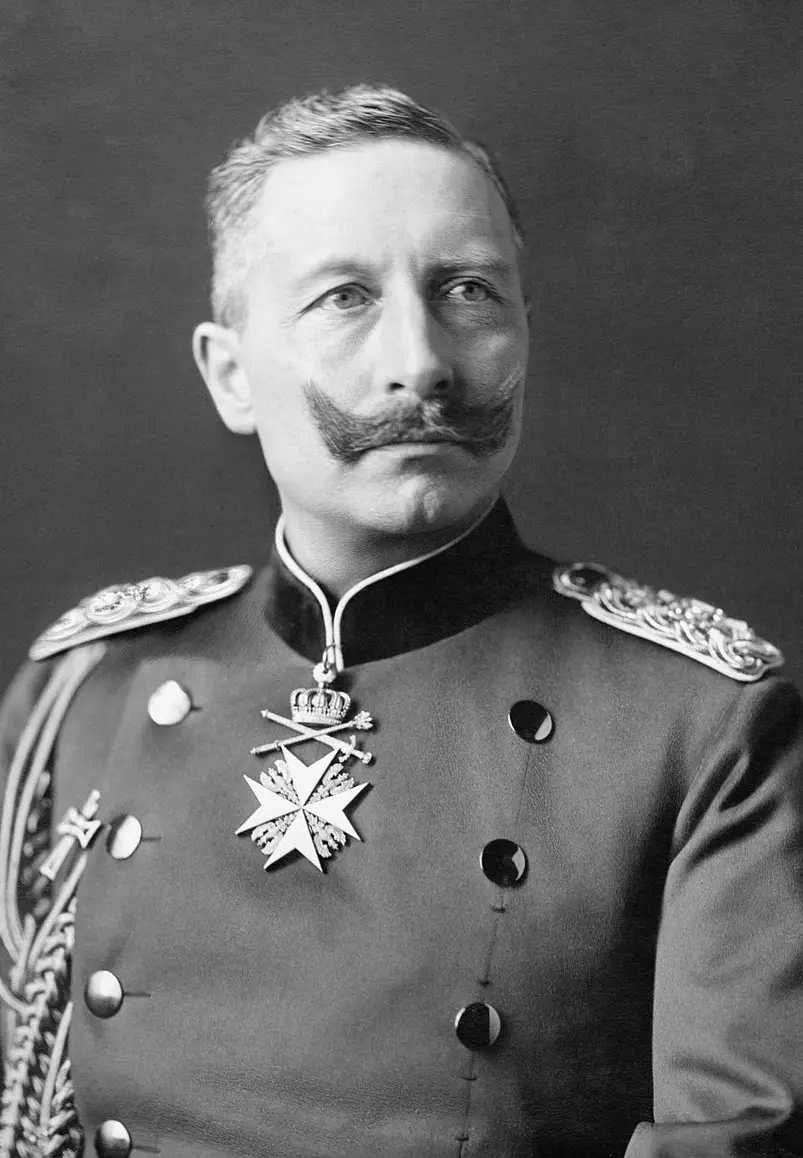 he late stages of the First World War saw mass collapse within the high ranks of the German leadership. Due to being pushed back, the leaders of the country saw their popular support drop massively. The war brought upon Germany massive shortages in food and other resources. Rationing was commonplace, and discontent towards the ruling class grew as a result. In the people’s eyes, people such as the Kaiser, who ultimately put Germany in this position, were not feeling the real impacts of the war. The brunt of the conflict was felt mostly by the lower class of the empire
he late stages of the First World War saw mass collapse within the high ranks of the German leadership. Due to being pushed back, the leaders of the country saw their popular support drop massively. The war brought upon Germany massive shortages in food and other resources. Rationing was commonplace, and discontent towards the ruling class grew as a result. In the people’s eyes, people such as the Kaiser, who ultimately put Germany in this position, were not feeling the real impacts of the war. The brunt of the conflict was felt mostly by the lower class of the empire
By late 1918 this reached a boiling point, and to save himself and his country Kaiser Friedrich Wilhelm Viktor Albert abdicated in the town of Spa in Belgium on 9 November 1918.
Nowhere to run
Now free from the reigns of running a country, Wilhelm II faced an even bigger problem. Where could he go?
By going through Germany to reach another country that would grant him asylum, he would risk being caught and potentially killed by the rising socialist forces, most notably active in Bavaria.
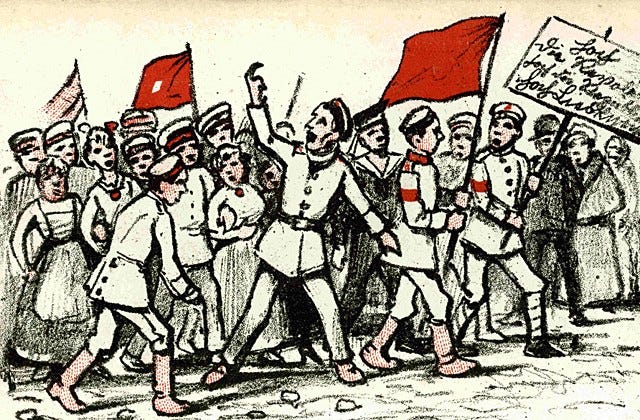
By going south, he inevitably would have to hand himself to the Allies. Once again not an amazing option considering he was vilified in the west through years of propaganda. The best outcome of this move would be his imprisonment in either France or Great Britain.
As to his west was sea the only other option that remained was going north towards the Netherlands. After some hesitation by the leadership of the country, he was granted access.
Life in the Netherlands
After the end of the war, much pressure was put on the government of the Netherlands to extradite the Kaiser in order for him to be trialed. The country had granted him asylum, and they did not want to back down on their promise.
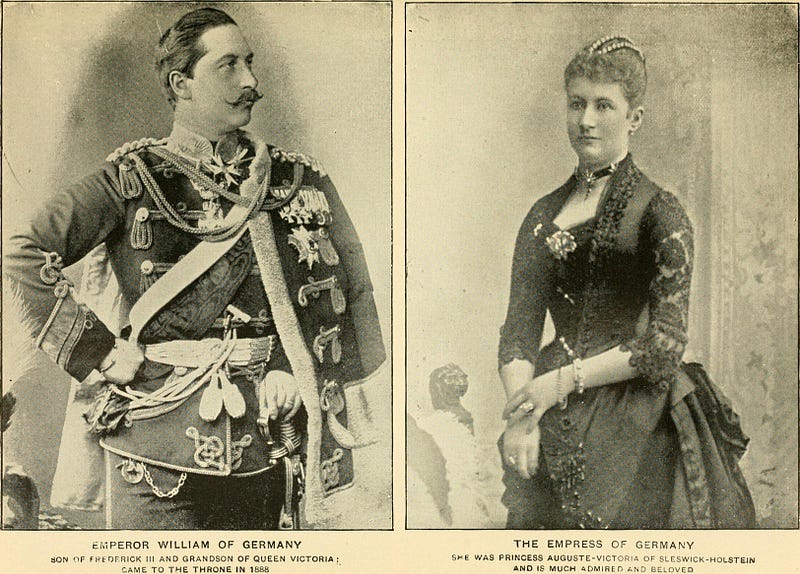
Using some of his riches from being the former king of one of Europe’s most powerful nations, he bought a villa in Huis Doorn and settled down into civilian life with his family. Not known anymore as Kaiser but by Mr. Hohenzollern. Due to much more pressing geopolitical turmoil around the world, the pressure for his extradition fizzled out.
Shortly after settling down, his wife, Princess Augusta Victoria of Schleswig-Holstein-Sonderburg-Augustenburg, died. He would go on to remarry and continue his political career from abroad.
Patiently waiting
Wilhelm II never gave up on Germany. From the time of his arrival in the Netherlands until his death, he waited for the German people to welcome him back as their ruler.
During his time in the Netherlands, the former Kaiser would go on to criticize the new Weimar Republic and its downfalls while justifying his mistakes during the war by blaming his ministers.
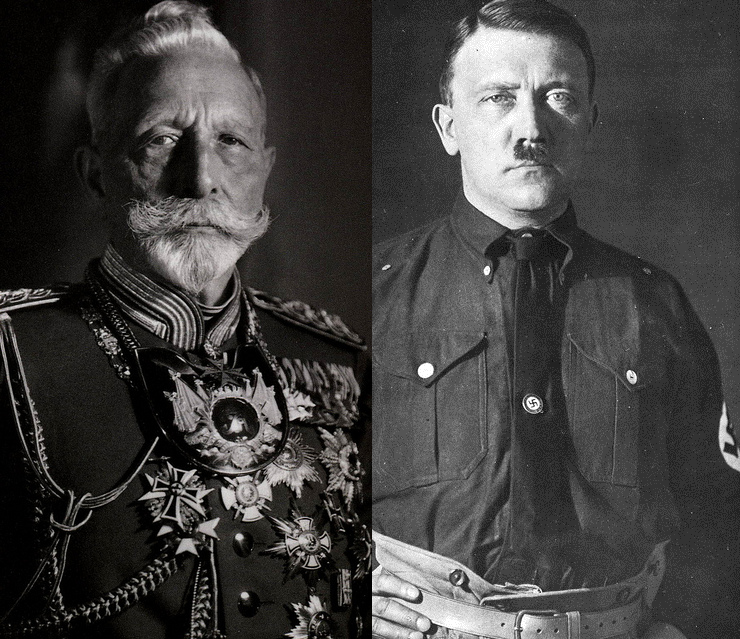
During Hitler’s rise to power, Wilhelm would go on to grow a disdain towards his ideology. The feeling on the other side was mutual, which was shortly seen after Hitler’s appointment as Chancellor of Germany in January 1933, after which he would go on to ban most symbolism that glorified the old monarchy.
His sentiment towards Hitler would start to change after he started to expand Germany’s borders. Being a king, we can insinuate that Wilhelm II had some Nationalistic tendencies; this became apparent when he saw the rate at which Germany expanded both economically and territorially under the leadership of Hitler.
The former Kaiser would go on to commend Hitler for his swift take of Poland and once again after the fall of Frace, something the former Kaiser saw as righteous retribution for the First World War.
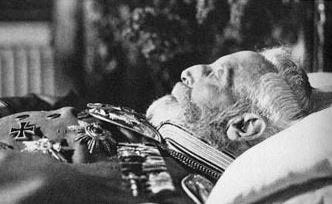
Wilhelm would not live long enough to see the eventual fall from grace of Germany due to his declining health in 1941, which eventually caused his death in the same year on 4 June 1941. Even though Hitler wished to bring the body of the former Kaiser to Germany and parade it in Berlin as a show of Hitler being the rightful successor of Germany’s leadership, in his will, Wilhelm specified that he did not want to be buried on German soil until the crown was back in power.
As a result, he was buried near his home in Huis Doorn, Netherlands, on 9 June 1941, where his body remains, as per his wish, until the crown of Hohenzollern took back the throne of Germany.

Student of Philosophy, Politics and Economics. History fanatic. Contact: aneculaeseicg@gmail.com

